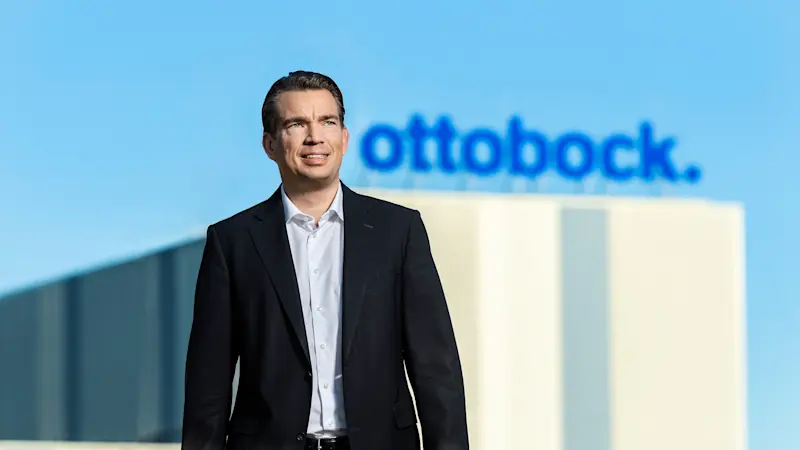We are creating value

A message of CEO Philipp Schulte-Noelle to the Ottobock employees as a reaction to the Handelsblatt article published on 3 June 2019
Dear colleagues,
while we could enjoy reading an interesting and well-researched article on Artificial Intelligence in Handelsblatt last week, editors of the same newspaper researched on the corporate figures of the Otto Bock Holding GmbH & Co. KG, which was transformed into the Näder Holding GmbH & Co. KG on 18 April 2019. The result of this research was published in Handelsblatt on 3 June 2019.
Unfortunately the descriptions in the article are partly inaccurate or simply wrong. I would therefore like to clarify some central points and enable you to place the article in the correct context.
A large and successful company like Ottobock and a public figure like Prof Näder inevitably attract attention and media interest. Ideally, this results in positive articles like those we read in the Handelsblatt last week. Sometimes - as in this case - it brings critics onto the scene. In most cases this is not uncommon and companies and managers must be able to endure it. However, journalists also have a due diligence obligations in their research and if, despite transparency on the part of the company, serious mistakes appear in the reporting, then we as a company must defend ourselves against them. We will therefore get in touch with Handelsblatt and examine the steps to be taken under press law.
Lastly, I would like you to know that we at Ottobock create considerable value. In 2018 our business has developed excellently so far. We will continue to pursue this joint growth path and focus on what we stand for: to help people achieve greater mobility and quality of life.
I thank you for your support and wish us continued success!
Best regards,
Philipp Schulte-Noelle
In the online version of the article which is now behind the publishing house’s pay wall the title is: “Mountain of debt and sale of shares: The situation of the prosthesis manufacturer Ottobock is precarious / The prosthesis king Hans Georg Näder has recently spread positive news about his company. But reality doesn't look very splendid."
The headline is simply wrong. The situation of Ottobock is by no means “precarious”. In contrast: In 2018, we increased annual sales by 6.7 percent to EUR 927 million, based on organic, currency-adjusted growth compared to the previous year. Adjusted operating profit before exceptional items (underlying EBITDA) rose by 15.9 percent to EUR 174 million.
Subsequently the article states: From today's point of view, it seems illusory that an IPO will take place as planned from 2020 onwards. Already once before this had been cancelled in 2017. The group figures for 2017 - more recent of which are not yet publicly available - are evidence of a precarious situation, which was tediously masked only by the sale of parts of the group. Thus the group divested part of its plastics business, and even a fifth of the healthcare division dominating the group turned Näder into money.
The IPO – and here the journalists of Handelsblatt do not clearly separate the companies from each other – remains a possible and realistic option for the Ottobock SE & Co. KGaA. We did not talk about 2020. Already on the occasion of the sale of shares to EQT in 2017, Professor Hans Georg Näder said that a possible IPO would be an option rather later than earlier. We continuously prepare the company for the stock market and take all the time we need.
The aforementioned corporate figures for 2017 relate to the Näder Holding GmbH & Co. KG. At no time, however, did the group intend to go public. And the plastics business mentioned below was a subsidiary of the group, the Näder Holding. Its sale therefore does not contribute to the results of the medical technology division and hence has no influence on the stock market eligibility of the company Ottobock. The sale took place for strategic reasons against the background of further concentration among automotive suppliers. The Näder family focuses on medical technology.
Also the comparison between exoskeletons of American start-ups and our Paexo is not yet complete. The development of a purely mechanical exoskeleton such as the Paexo is not comparable to an aid that is capable of higher performance than the human body thanks to external energy supply. This is where we and American start-ups pursue different goals. The Industrials division remains an important growth area for us. Just recently, Dr Sönke Rössing and his team were able to win a contested, major contract as exclusive supplier of exoskeletons for the plant of an international automotive group in the USA. Equipping further plants is currently under discussion. The Paexo Shoulder assistance system has successfully prevailed over competitors of American start-ups from the Silicon Valley.
